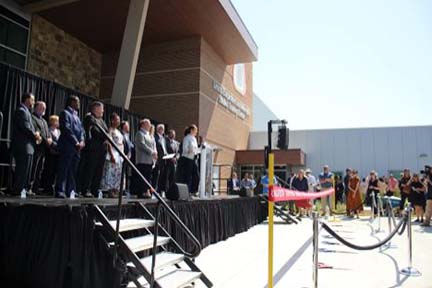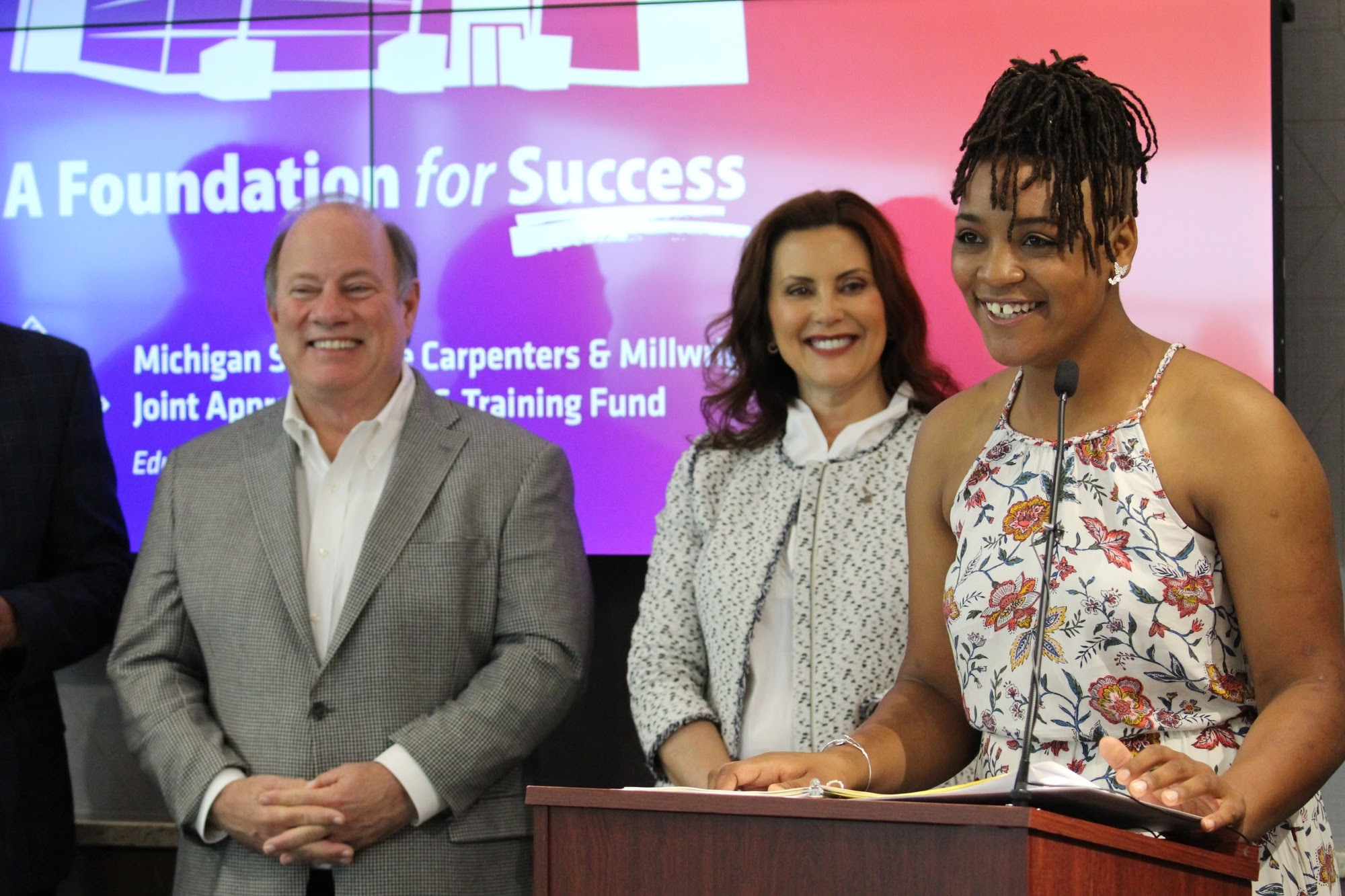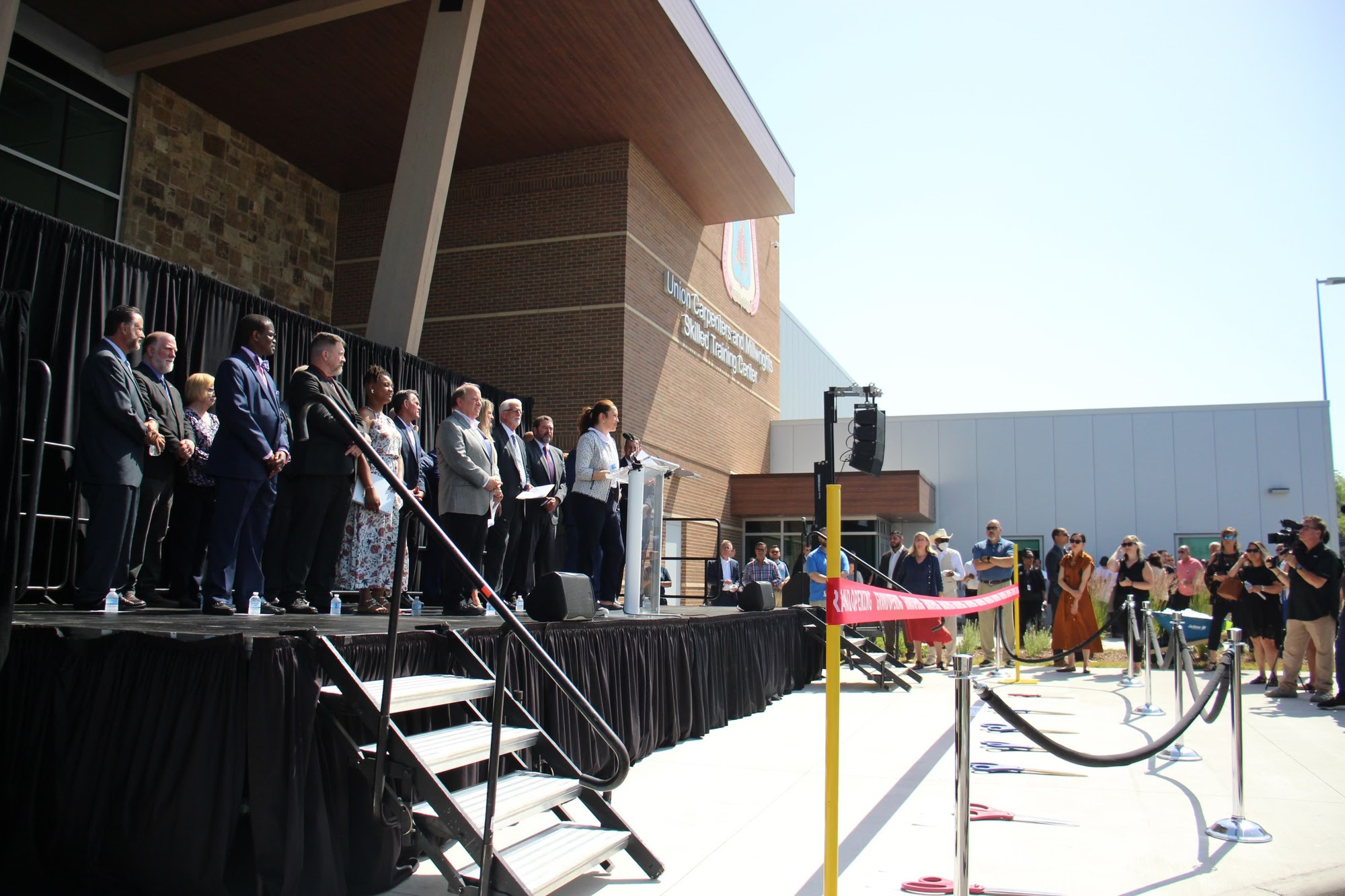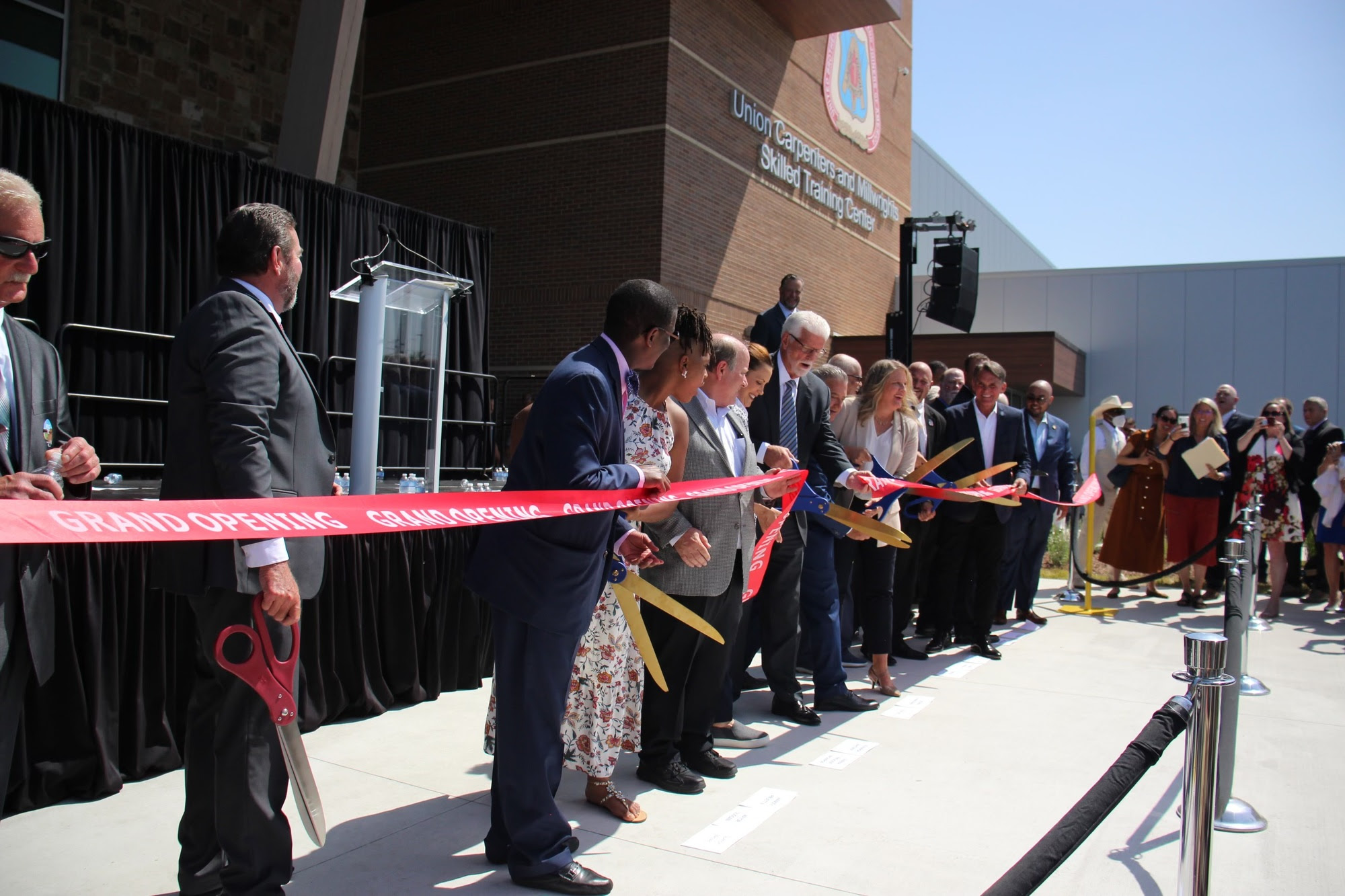
Grand Opening of State-of-the-Art Training Center in Detroit

FOR IMMEDIATE RELEASE June 15, 2022 Contact: [email protected]
Gov. Whitmer Kicks Off Grand Opening of Michigan Regional Carpenters and Millwrights’ State-of-the-Art Training Center in Detroit
DETROIT, Mich. – Today, Governor Whitmer joined labor leaders and local elected officials for the ribbon-cutting ceremony of the Michigan Regional Council of Carpenters and Millwrights’ (MRCC) new training center in northwest Detroit. The 145,000 square-foot training center is home to state-of-the-art classrooms, training areas, and some of the most advanced methods and tools in the industry. The new center will train up to 1,500 students a year and play a pivotal role in reaching the governor’s Sixty by 30 goal to have 60% of working-age Michiganders earn a skills certificate or postsecondary degree by 2030.
“As a proud, pro-union governor to my core, I am thrilled to celebrate the opening of the MRCC’s state-of-the-art center in Detroit that will train up to 1,500 Michiganders and help them land good-paying, high-skill union jobs,” said Governor Whitmer. “Michiganders rely on carpenters, millwrights, floor layers, piledrivers, and all our skilled trades to build the infrastructure that powers Michigan’s economy. Their hard work is the reason that since I took office through the end of this year, we will fix over 16,000 lane miles of road and 1,200 bridges, build or refurbish nearly 12,000 affordable housing units, and replace tens of thousands of lead service lines. With their partnership, I have acted to center working people in all the work that we do. Together, we reinstated prevailing wage, cracked down on payroll fraud, expanded opportunities for people to land good-paying union jobs, and continued delivering on the kitchen-table issues that matter most to working families. When working families succeed, we all succeed. Let’s keep getting things done together that make a difference in their lives.”
“The opening of this state-of-the-art training center right here in Detroit shows the commitment of carpenters and millwrights to preparing the best construction professionals and creating good-paying Michigan jobs,” said MRCC Executive Secretary-Treasurer Tom Lutz. “This new training center – built without any taxpayer dollars – represents a gateway to a promising future for countless men and women willing to learn and work hard in a rewarding, good-paying career. By locating our training center in a Detroit neighborhood, carpenters and millwrights are committed to supporting our communities, opening doors of opportunities for everyone, and doing our part to move Michigan forward.”
The sprawling facility houses classrooms and training areas for hands-on experience and real-world simulations. Students will study and train in an apprenticeship program designed and taught by the carpenters and millwrights union, which currently has more than 14,000 members across Michigan. Enrollment in the apprenticeship program is free, and students incur no debt for their education. Those who join MRCC’s apprenticeships also get good wages, healthcare, and pension benefits while they learn. The center will train up to 1,500 students a year.
The MRCC is a partner in Detroit’s job creation program and has pledged to triple the number of Detroit residents in the union’s apprenticeship program by ensuring that 25 percent of all incoming first-year apprentices are Detroit residents over the next decade. MRCC and its contractor partners fund all aspects of the apprenticeship program, including the construction of the new center.
“Thanks to this brand-new cutting-edge training center, the Michigan Regional Council of Carpenters and Millwrights is investing in Michigan workers, Michigan jobs, and Michigan’s future,” said Secretary of Labor Walsh. “The leadership of the carpenters and millwrights will help the United States and the State of Michigan continue to build the critical infrastructure we need to be competitive in a global economy. This new training center showcases the fact that good-paying jobs and rewarding careers are available right out of high school to those who are willing to learn, train and work hard. America needs well-trained, well-educated skilled trades professionals today and for years to come, and the carpenters and millwrights’ training center is the pipeline to good-paying and rewarding careers in construction that will always be in demand.”
“Skilled trades careers are a brotherhood and sisterhood of professionals who strive to be the best, look out for each other and rebuild America, Michigan and our neighborhoods from the inside out,” Doug McCarren, General President of the United Brotherhood of Carpenters said. “Carpenters and millwrights represent the future, and this training center will help thousands of residents in Detroit and beyond get access to the best training around so they can be part of a brighter future.”
“Businesses and companies in the construction industry are looking for the best trained, best educated, best-prepared workers around, and the Michigan Regional Council of Carpenters and Millwrights’ new training center in Detroit is an exciting opportunity for men and women to get that education and training for good-paying careers,” said Donna Pardonnet, executive director of the Architectural Contractors Trade Association of Michigan. “Construction jobs are in high demand and an apprenticeship at this new training center is a terrific way for young people to start a great career and get paid while they learn.”
Highly trained skilled trades professionals are in high demand in Michigan, and experts anticipate the current shortage of such workers to continue well into the next decade. Skilled trades professionals such as carpenters and millwrights account for more than 500,000 jobs in Michigan.
Investing in Michigan’s Workforce Governor Whitmer is dedicated to helping Michiganders pursue their potential. Since she took office, she has worked across the aisle to establish critical workforce development programs and fund paths for workers to learn new skills and land good-paying jobs.
She established and funded Michigan Reconnect, a program that is providing tens of thousands of Michiganders tuition-free higher education or skills training that leads to a high-skill, good-paying job. Across three balanced, bipartisan budgets, she also funded and grew the number of apprenticeships and pre-apprenticeships offered in Michigan and set up and funded Futures for Frontliners to offers tens of thousands of Michiganders who served on the frontlines of the pandemic tuition-free paths to higher education.
All these efforts will help Michigan reach the Governor’s Sixty by 30 goal to increase the number of working-age adults with a skill certificate or college degree from 49% today to 60% by 2030. With this initiative, Michiganders will have greater access to the education and skills that create opportunities for better jobs and bigger paychecks.
Fighting for Working People Governor Whitmer is dedicated to putting working people first through her actions. Her decision to reinstate prevailing wage for all state construction contracts ensures hard-working Michiganders can earn a decent standard of living, take care of their families, and have a secure retirement. Paying prevailing wage for state construction projects also guarantees taxpayers get a well-trained, skilled workforce to build safe, reliable infrastructure with the right mix and materials.
The governor also signed an executive directive cracking down on payroll fraud, ensuring that companies cannot misclassify their employees and deny them critical pay and benefits. She is proud to have appointed over 200 members of the labor community to state boards and commissions, ensuring their voices are at the table for key decisions.
|









